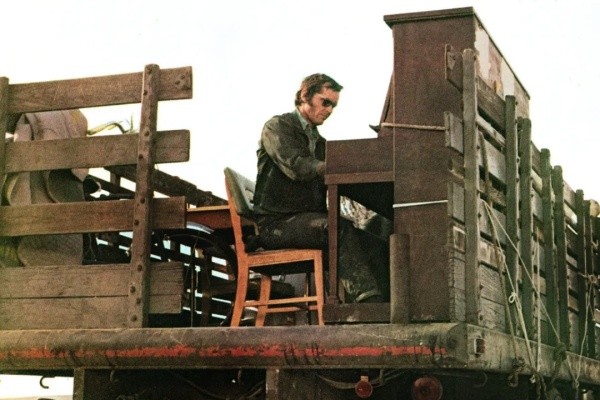You can count on Pablo Larrain to imagine an unconventional and layered ‘biopic’ that speaks volumes of cinema’s potential in historicising and poeticising the legacy of a great man.

REVIEW #1,473
Dir. Pablo Larrain
2016 | Chile/Argentina | Biography/Crime/Drama| 107 mins | 2.35:1 | Spanish & French
M18 (passed clean) for sexuality/nudity and some language
Cast: Gael Garcia Bernal, Luis Gnecco, Mercedes Moran
Plot: An inspector hunts down Nobel Prize-winning Chilean poet, Pablo Neruda, who becomes a fugitive in his home country in the late 1940s for joining the Communist Party.
Awards: Nom. for Best Foreign Language Film (Golden Globe); Official Selection (Cannes & Toronto)
International Sales: Funny Balloons
Accessibility Index
Subject Matter: Moderate
Narrative Style: Complex
Pace: Slightly Slow
Audience Type: Slightly Arthouse
Viewed: Singapore International Festival of Arts – The Projector
First Published: 17 Jul 2017
Spoilers: No
When Edvard Grieg’s hauntingly beautiful “Norwegian Melodies, Op. 63” accompanied several scenes in Neruda’s final act, there is suddenly a swelling of power and emotion, one borne out of a deliberated attempt to build the film’s narrative into a transcendent whole, a kind of sum-greater-than-its-parts moment that the picture needed.
This is after all a very complex and layered work, which is of no surprise coming from one of South American cinema’s most intriguing voices—Pablo Larrain, the Chilean director of such films as Post Mortem (2010), No (2012), and most recently, Jackie (2016), his first English-language feature.
Neruda could be his most sophisticated film to date, centering on Pablo Neruda, the famous Nobel Prize-winning Chilean poet, who was the very embodiment of the old adage: the pen is mightier than the sword.
His poetry, lauded by many, spoke for the oppressed and the underprivileged. Being a Communist, he becomes a fugitive in his home country, while an inspector is tasked by the President to find and apprehend him.
It is a cat-and-mouse game, which plays out physically, but Neruda is more fascinating if you see it as a psychological game of literary chess, at least in retrospect.
“Police novels help me forget the police are after me.”
Larrain’s unconventional ‘biopic’ deals with the demons that besiege the obsessed—Oscar the inspector pulls out all the stops to find Neruda; likewise, Neruda wants to be chased, and perhaps to be found.
The film goes into more abstract terrain, exploring the nature of storytelling and characterisations in a semi meta-literary way, while its visuals pay homage to detective noirs, and in its climax, the Western.
Neruda is really an amalgamation of textual and visual ideas, melding together in such a way that it speaks volumes of cinema’s potential in historicising and poeticising the legacy of a great man.
Gael Garcia Bernal plays Oscar with a smirk on his face, while Luis Gnecco, in a finer performance, imbues Neruda with charisma, an infallible ‘hero’ charting his own development, and possibly his own victory or demise.
Like in Jackie, Larrain is interested in the experience of the psyche. Jacqueline Kennedy battled with grief and trauma to define her husband’s legacy. Similarly, Neruda battled with political oppression—internalising it as a kind of neurosis—to define his own legacy.
Whether this is accurately portrayed or not is beside the point—Larrain took liberties with screenwriter Guillermo Calderon and the result is an uncommonly thought-provoking gem.
Grade: A-
Trailer:
Music:












Interesting review, thanks! I saw it at a cinema when it came out but I must admit that it didn’t impress me much…
LikeLiked by 1 person
I see… while I enjoyed it, I still think Larrain’s earlier works are more powerful, especially TONY MANERO and POST MORTEM!
LikeLiked by 1 person
[…] fictional characters as in Tony Manero (2008) and Post Mortem (2010), or real-life figures in Neruda (2016) and Jackie […]
LikeLike
[…] and No (2012), as well as reimaginations of famous historical figures from the 20th century in Neruda (2016), Jackie (2016) and Spencer […]
LikeLike